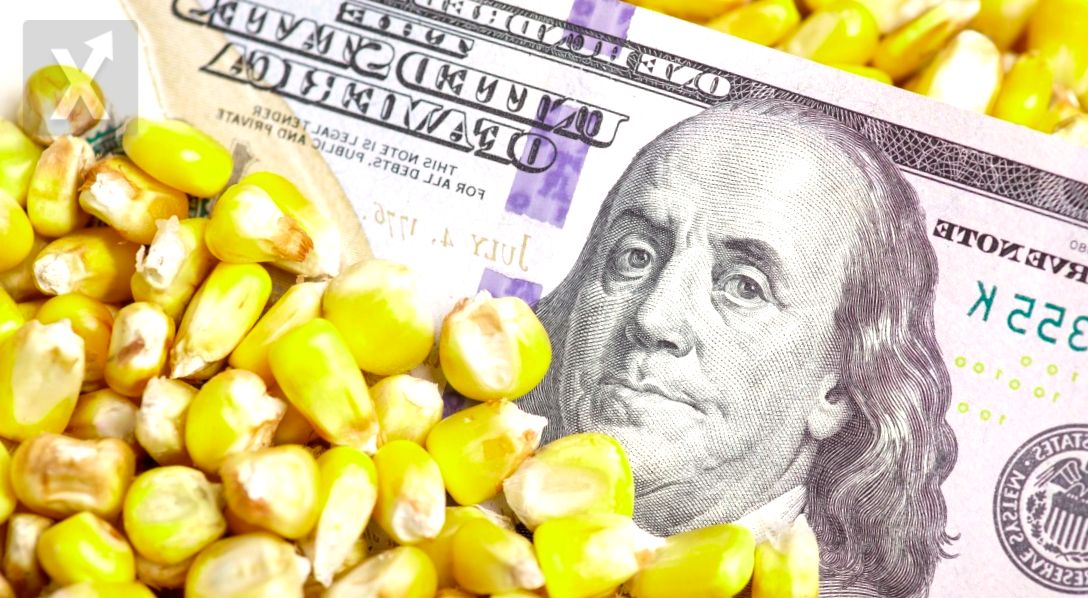The GMO Corn Controversy Between Mexico and the United States: A $5 Billion Dispute

In Mexico, there is a wait for the final ruling that will be issued by the dispute resolution panel of the US-Mexico-Canada Agreement (USMCA), which was requested by the United States due to the restrictions imposed on the import of GMO corn under the administration of Andrés Manuel López Obrador. It wouldn't be surprising if the ruling favors the United States, as a preliminary report from the panel supports its position in this dispute. This report has been shared with Secretary of Economy Marcelo Ebrard, although the final decision is still anticipated to be announced on Saturday, December 14.
An Imminent Defeat
For the United States, this conflict is crucial to protect its corn exports to Mexico, which exceeded $5.386 billion in 2023 and continue to grow. Data from the U.S. Department of Agriculture indicates that from January to October 2024, corn exports to Mexico reached $4.711 billion, representing a 5% increase compared to the same period in 2023. Mexico is the most significant market for U.S. corn exports, accounting for 41% of them. These statistics underscore the importance of Mexico in U.S. international corn trade and the potential economic repercussions that the Mexican measure could have.
The Decrees and the Panel
The first decree related to this issue was issued by Andrés Manuel López Obrador on December 31, 2020, followed by another on February 13, 2023, which prohibits the use of GMO corn seeds in agriculture. These decrees also limit the use of GMO corn in the production of masa and tortillas. However, the 2023 decree raised alarms in the United States, as it forced Mexican authorities to revoke prior approvals and to not allow GMO corn for human consumption. U.S. Trade Representative Katherine Tai quickly responded, addressing the issue with former Secretary of Economy Raquel Buenrostro, who claimed that the decree wouldn’t affect trade because U.S. corn is primarily used for animal and industrial consumption. Despite this, the U.S. Congress expressed that Mexican policies lacked scientific basis and could severely harm American farmers and Mexican ranchers, affecting billions of dollars in agricultural trade. In response to increasing pressure from American farmers, in March 2023, the USTR formally requested that Mexico’s Secretariat of Economy initiate technical consultations regarding the decree. Although these discussions occurred, no agreement was reached. In June, the consultations moved to the dispute resolution phase, but they also ended without success. Finally, in August 2023, the United States requested the establishment of a panel to assess whether Mexico's biotech measures regarding GMO corn violated the USMCA. In this process, Canada participated as an interested party, and both Mexico and Canada presented their arguments in 2024. In November, Ebrard reported that the preliminary outcome received in October was not favorable for Mexico. “We have the preliminary result regarding the corn, although the process is not over, they may possibly win. What's important is that the system is working,” he stated, highlighting the effectiveness of the USMCA panels. If it is confirmed that the ruling is unfavorable, Ebrard mentioned that actions are already being contemplated. Business leaders believe that in the current tension, and with the possible return of Donald Trump, the wisest approach for Mexico would be to accept the panel's ruling, as refusing could complicate the review of the USMCA. If Mexico accepts the ruling, it could send a message that it seeks continuity of the USMCA, but if it decides to act otherwise, it would give Trump ammunition to argue that the treaty is not being honored, according to Carlos Palencia, general director of Index. However, President Claudia Sheinbaum remains steadfast in her intention to ban GMO corn in the country, even hoping that this decision reaches the constitutional level.
In summary, this situation demonstrates how intertwined the economy and agricultural policies are between nations. The impact of this dispute over GMO corn could set important precedents for future negotiations, and it is vital that Mexico carefully evaluates its decisions to protect both its international trade and its internal market. The key will be finding a balance that allows Mexico to maintain its food sovereignty without jeopardizing its trade relationship with the United States.






